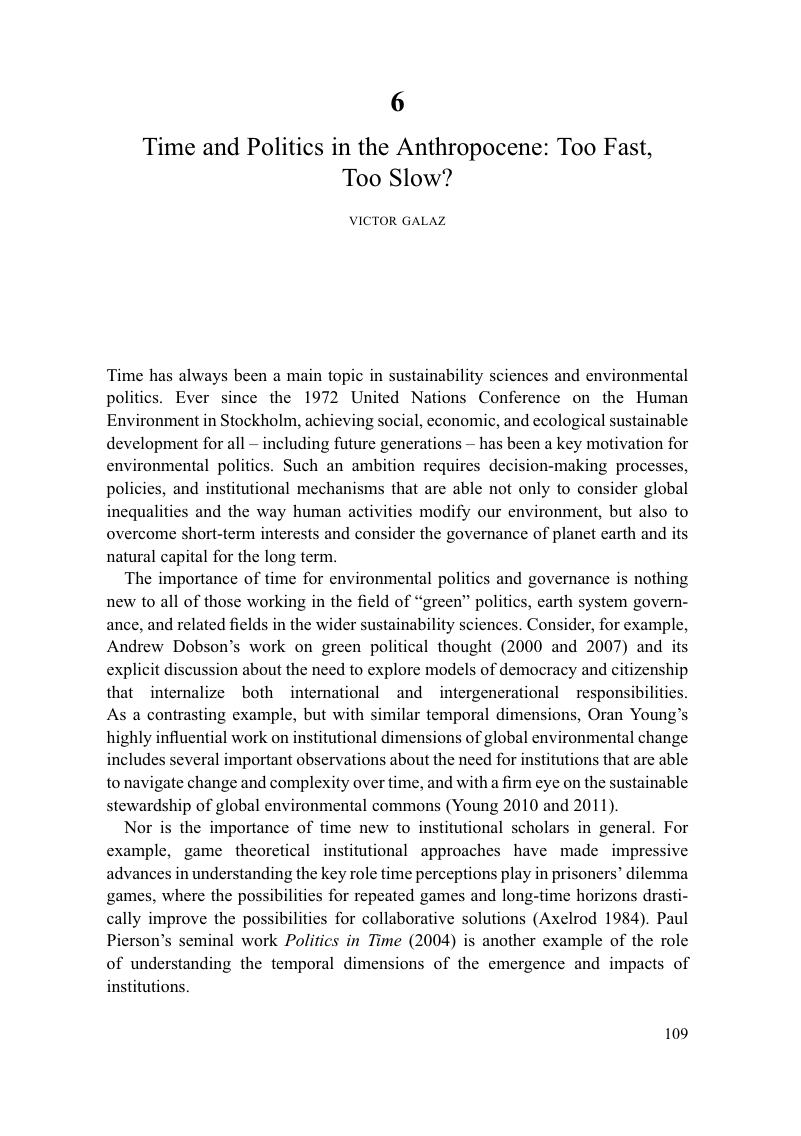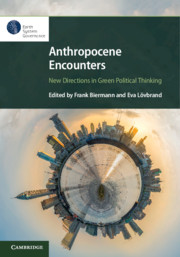Book contents
- Anthropocene Encounters: New Directions in Green Political Thinking
- Series page
- Anthropocene Encounters
- Copyright page
- Contents
- Figures
- Contributors
- Acknowledgments
- 1 Encountering the “Anthropocene”: Setting the Scene
- Part I The Conceptual Politics of the Anthropocene: Science, Philosophy, and Culture
- Part II Key Concepts and the Anthropocene: A Reconsideration
- 5 Power, World Politics, and Thing-Systems in the Anthropocene
- 6 Time and Politics in the Anthropocene: Too Fast, Too Slow?
- 7 Democracy in the Anthropocene: A New Scale
- 8 Global Justice and the Anthropocene: Reproducing a Development Story
- Part III The Practices of Political Study in the Anthropocene
- Index
- References
6 - Time and Politics in the Anthropocene: Too Fast, Too Slow?
from Part II - Key Concepts and the Anthropocene: A Reconsideration
Published online by Cambridge University Press: 21 January 2019
- Anthropocene Encounters: New Directions in Green Political Thinking
- Series page
- Anthropocene Encounters
- Copyright page
- Contents
- Figures
- Contributors
- Acknowledgments
- 1 Encountering the “Anthropocene”: Setting the Scene
- Part I The Conceptual Politics of the Anthropocene: Science, Philosophy, and Culture
- Part II Key Concepts and the Anthropocene: A Reconsideration
- 5 Power, World Politics, and Thing-Systems in the Anthropocene
- 6 Time and Politics in the Anthropocene: Too Fast, Too Slow?
- 7 Democracy in the Anthropocene: A New Scale
- 8 Global Justice and the Anthropocene: Reproducing a Development Story
- Part III The Practices of Political Study in the Anthropocene
- Index
- References
Summary

- Type
- Chapter
- Information
- Publisher: Cambridge University PressPrint publication year: 2019
References
- 18
- Cited by



